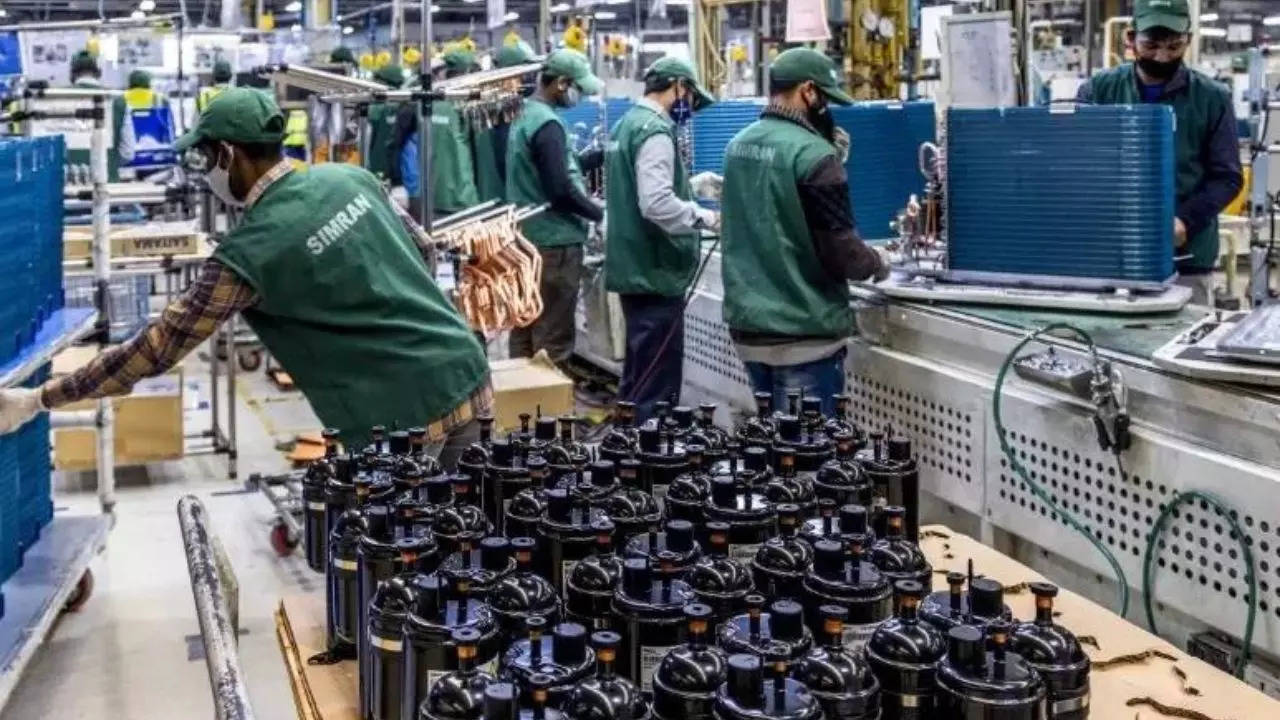Empowered committee in PLI scheme approves Rs 1,000 crore disbursement to beneficiaries of electronics sector – Times of India

[ad_1]
“In the recent meeting of the committee, Rs 1,000 crore disbursements were approved under the PLI scheme for the electronics sector. Actual disbursement to the beneficiary companies would take a few more days,” the official said.
This would be the first disbursement of this fiscal.
The scheme was announced in 2021, for 14 sectors including large-scale electronic manufacturing, white goods, textiles, manufacturing of medical devices, automobiles, specialty steel, food products, high-efficiency solar PV modules, advanced chemistry cell battery, drones and pharmaceuticals with an outlay of Rs 1.97 lakh crore.
The scheme is doing well in sectors such as electronics, pharma, and medical devices.
As many as 32 beneficiaries had been approved under the PLI scheme for large-scale electronics manufacturing, including mobile phones and specified electronic components.
The proposal for disbursement of incentives are presented by respective ministries/departments which are implementing the scheme.
It is considered by the Empowered Committee comprising NITI Aayog, department for promotion of industry and internal trade, ministry of electronics and informational technology, and representatives from the Department of Expenditure, Department of Revenue, Department of Economic Affairs and office of DGFT (directorate general of foreign trade).
The committee gives its recommendations for disbursal of incentive to the selected beneficiary under the PLI scheme.
In sectors where PLI disbursement is low or if firms are not able to meet their performance thresholds, in such cases, respective departments are looking at course corrections in the scheme.
High-level review meetings have been held in recent times to review the progress of the scheme.
Another official expressed hope that the disbursements will pick up soon.
The sectors where PLI performance is healthy include large-scale electronics manufacturing, pharma, food processing, and white goods.
Sectors which are not picking up well include high-efficiency solar PV modules, advanced chemistry cell (ACC) batteries, textile products and speciality steel.
